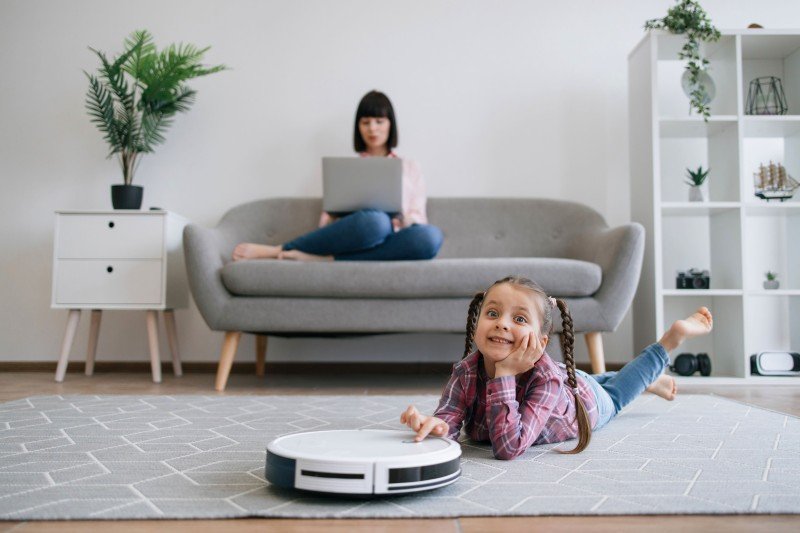The Worst Advice We've Received On Vacuums Robot
The Rise of Robot Vacuums: A Comprehensive Guide
In the last few years, robotic vacuum cleaners have changed the method families keep cleanliness. With Automatic Cleaning Machines becoming advanced and available, they have actually garnered attention for their performance, benefit, and functions. This post looks into what robotic vacuums provide, how they work, the advantages they offer, and the considerations buyers must remember when selecting one.
What Is a Robot Vacuum?
A robot vacuum is an automated, autonomous cleaning gadget created to perform different cleaning jobs, usually concentrated on floor surfaces. They are geared up with sensing units, brushes, and motors that enable them to navigate around spaces, avoid obstacles, and tidy effectively. The introduction of smart home technology further enhances these devices' abilities, enabling users to incorporate them into their home automation systems.
Kinds Of Robot Vacuums
Robot vacuums come in different designs, each with unique features and functionalities. Here are a few of the main types:
Basic Models:
- Simple cleaning functions
- Random navigation patterns
- Lower price point
Mid-Range Models:
- Improved navigation systems (e.g., gyroscopic or sensor-based)
- Scheduling capabilities
- Moderate suction power
High-End Models:
- Advanced mapping and navigation abilities
- Smart functions (Wi-Fi connectivity, integration with smart assistants)
- High suction power and specialized brushes for different surfaces
Functions to Consider
When picking a robot vacuum, various features can boost user experience and overall functionality. Below is a list of critical features to think about:
Mapping Technology:
- Advanced designs map out spaces, allowing for effective cleaning and room-specific settings.
Suction Power:
- Higher suction power can enhance efficiency on various surfaces, particularly carpets.
Battery Life:
- Longer battery life enables extended cleaning sessions. Look for designs that can return to charging stations when short on power.
Dustbin Capacity:
- Consider the size of the dustbin as it identifies how regularly it needs to be emptied.
Control Options:
- Many models provide mobile app combination and voice control compatibility. This enables for remote operation and scheduling.
Obstacle Detection:
- Advanced models use electronic cameras and sensors to avoid barriers and avoid getting stuck.
Mopping Capability:
- Some robot vacuums include mopping performance, offering a two-in-one cleaning solution.
Benefits of Using a Robot Vacuum
Robot vacuums use several substantial benefits over traditional vacuums:
Convenience:
Users can set a cleaning schedule and let the vacuum do the work, maximizing valuable effort and time.Efficiency:
Many designs have intelligent navigation technology that enables them to clean methodically, guaranteeing no location is overlooked.Accessibility:
Robot vacuums can reach under furnishings and other hard-to-reach locations, offering a more thorough cleaning experience.Irritant Reduction:
Regular vacuuming minimizes dust, animal hair, and irritants, enhancing indoor air quality, specifically useful for allergic reaction sufferers.Programmable Cleaning:
Users can customize cleaning schedules based on their way of life, guaranteeing homes remain tidy without manual intervention.
How Robot Vacuums Work
Understanding how a robot vacuum runs can help users optimize its capacity. Below is a simplified overview of the working system:
Sensors:
Robot vacuums are geared up with various sensing units to prevent collisions and browse around furniture. Infrared and cliff sensing units avoid them from falling off stairs.Navigation and Mapping:
Basic designs may utilize random navigation patterns, while sophisticated models use sophisticated mapping innovation to develop a layout of the home. They can determine locations that require specific attention, improving total effectiveness.Cleaning Mechanisms:
Robot vacuums make use of brushes or rollers to agitate dirt and particles, enabling the suction motor to collect the particles into a dustbin. Some incorporate HEPA filters to trap allergens.Charge Cycle:
When the battery runs low, the robot vacuum can go back to its docking station autonomously to charge, guaranteeing it's constantly prepared for its next cleaning session.
Popular Brands of Robot Vacuums
With a growing market for robotic vacuums, several brand names standout for their development, customer care, and item performance. Below are a few of the leading brands:
Brand
Noteworthy Features
Price Range
iRobot Roomba
Smart mapping, Wi-Fi connection, strong suction
₤ 200 – ₤ 1,000
Roborock
Laser mapping, mopping function, excellent battery life
₤ 300 – ₤ 900
Ecovacs D-Bot
Smart home combination, powerful cleaning modes
₤ 250 – ₤ 600
Neato Robotics
D-shape style for corner cleaning, strong suction
₤ 400 – ₤ 800
Eufy
Affordable choices, good suction power
₤ 150 – ₤ 400
Frequently Asked Questions (FAQs)
Can robot vacuums replace traditional vacuums?
Robot vacuums can significantly minimize the frequency of traditional vacuuming, but they might not totally replace them due to restrictions on deep cleaning and larger debris. Lots of people utilize both for ideal outcomes.
How often should a robot vacuum run?
A robot vacuum can be scheduled to tidy daily or numerous times a week, depending upon lifestyle, family pet hair levels, and family foot traffic.
Are robot vacuums quiet?
The majority of robot vacuums are developed to run silently, but sound levels might vary based upon the design and cleaning surface.
How do I keep my robot vacuum?
Regular maintenance consists of clearing the dustbin, cleaning the filters, and checking the brushes for hair and particles. Occasionally, Robot Vacuum Mops might require to upgrade firmware.
Is it safe for family pets?
Many robot vacuums are safe for animals, but ensuring that they do not get contended long hair is essential. Functions like barrier detection can help avoid incidents.
Robot vacuums have emerged as an advanced cleaning solution that simplifies household upkeep. With efficient cleaning paths, ease of usage, and advanced innovation, they can fit seamlessly into modern lifestyles. When picking a robotic vacuum, purchasers must consider numerous features, types, and brand names to discover the ideal fit for their home's cleaning needs. As innovation continues to develop, it's most likely that the convenience and efficiency of robotic vacuums will only enhance, making them a necessary appliance in every family.
